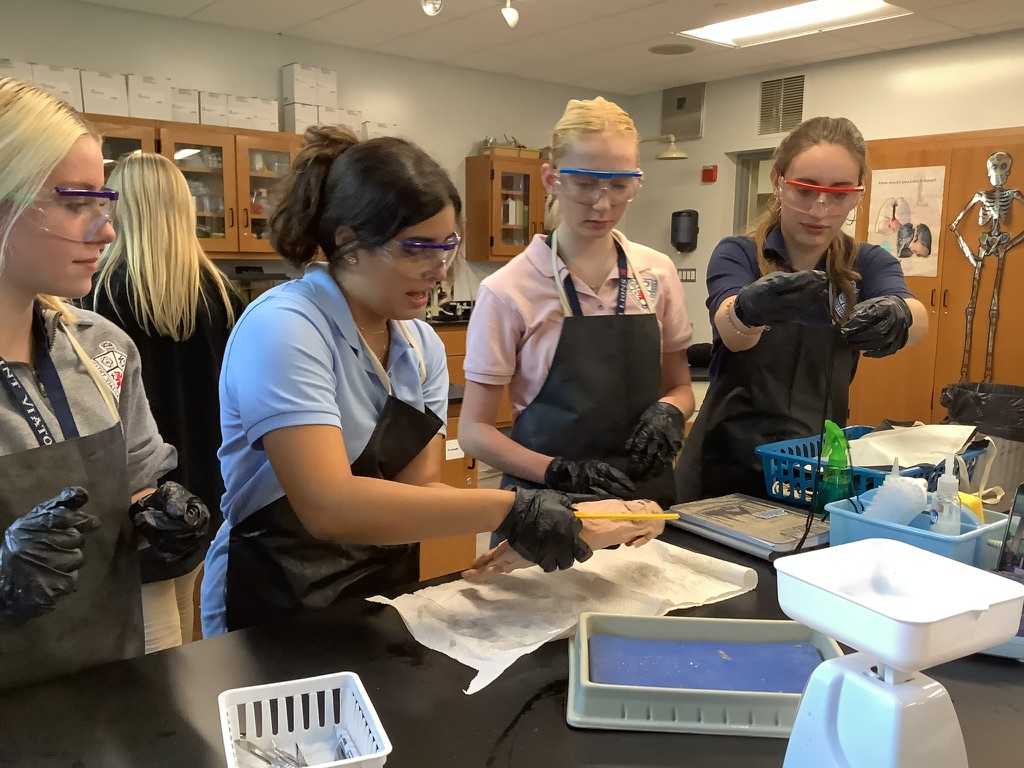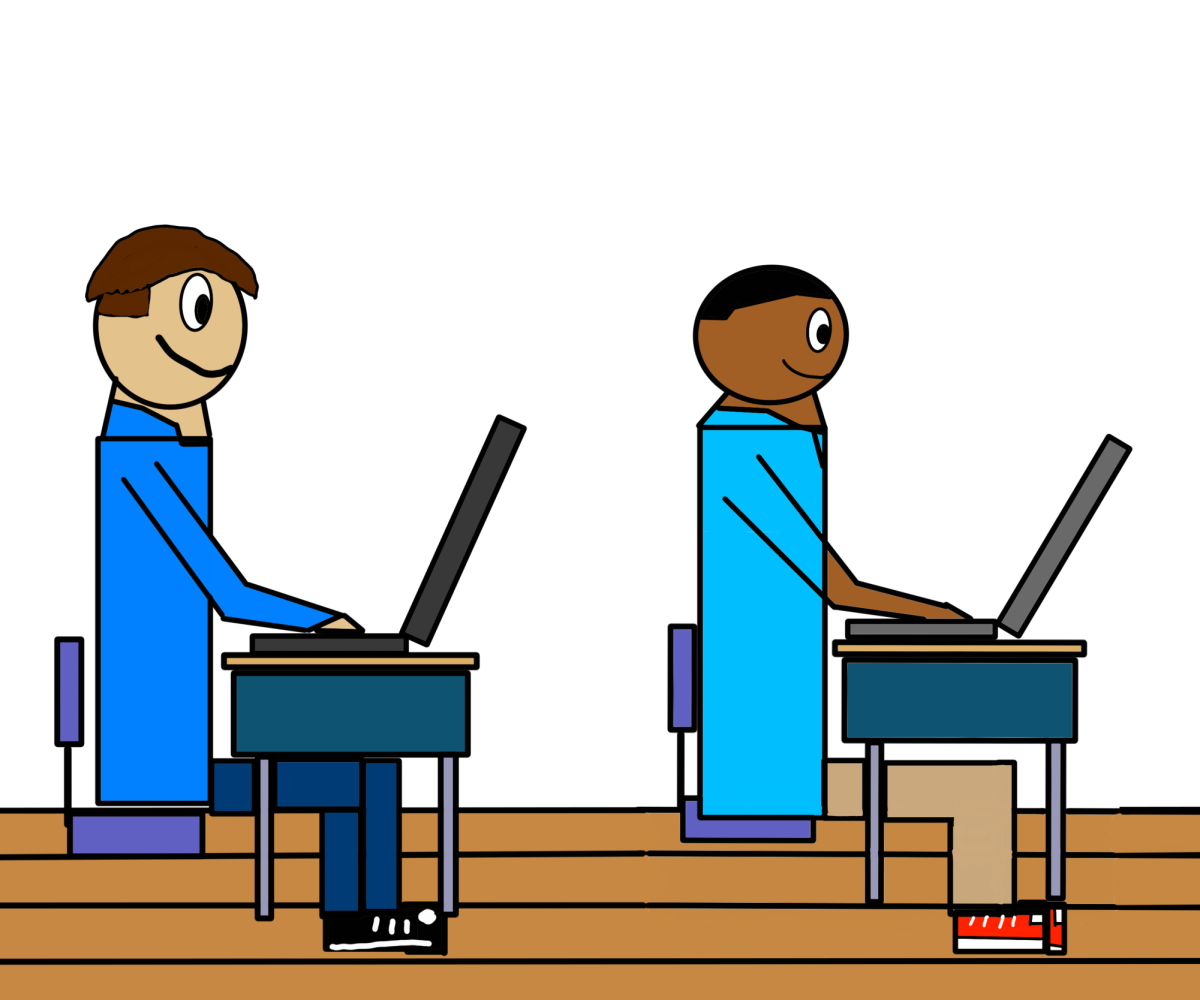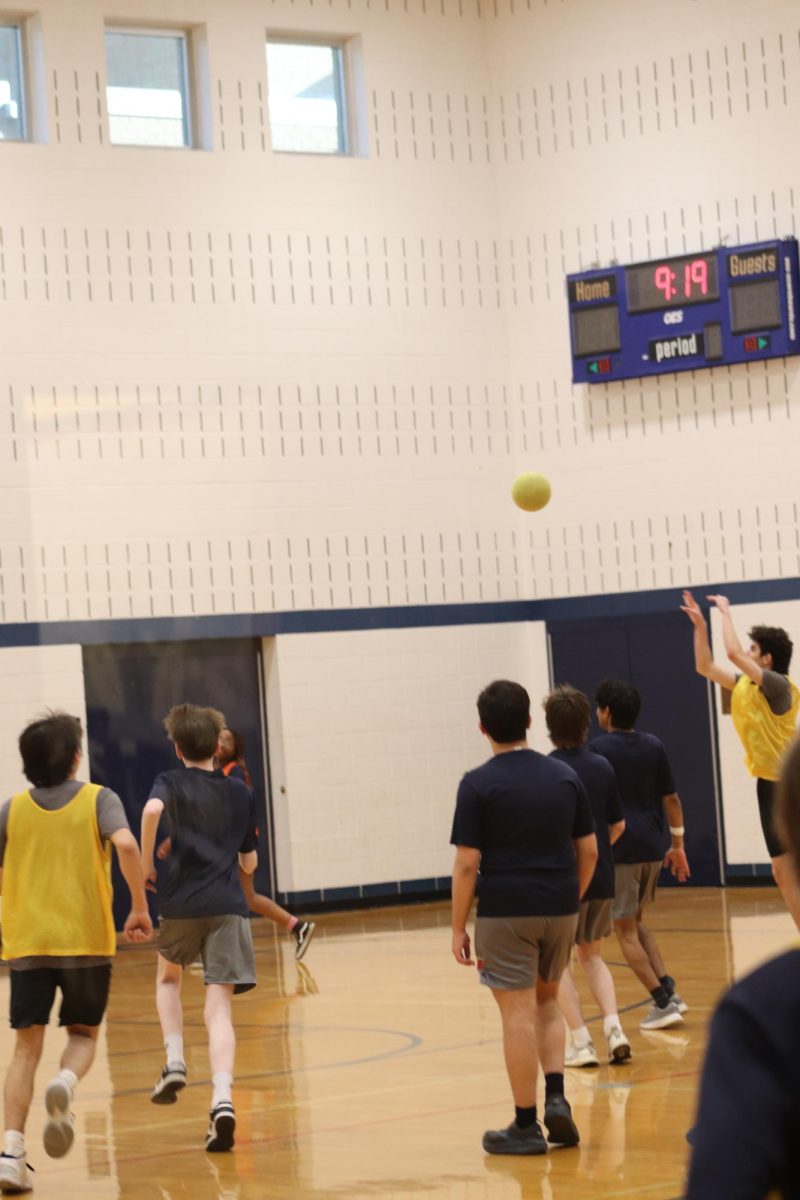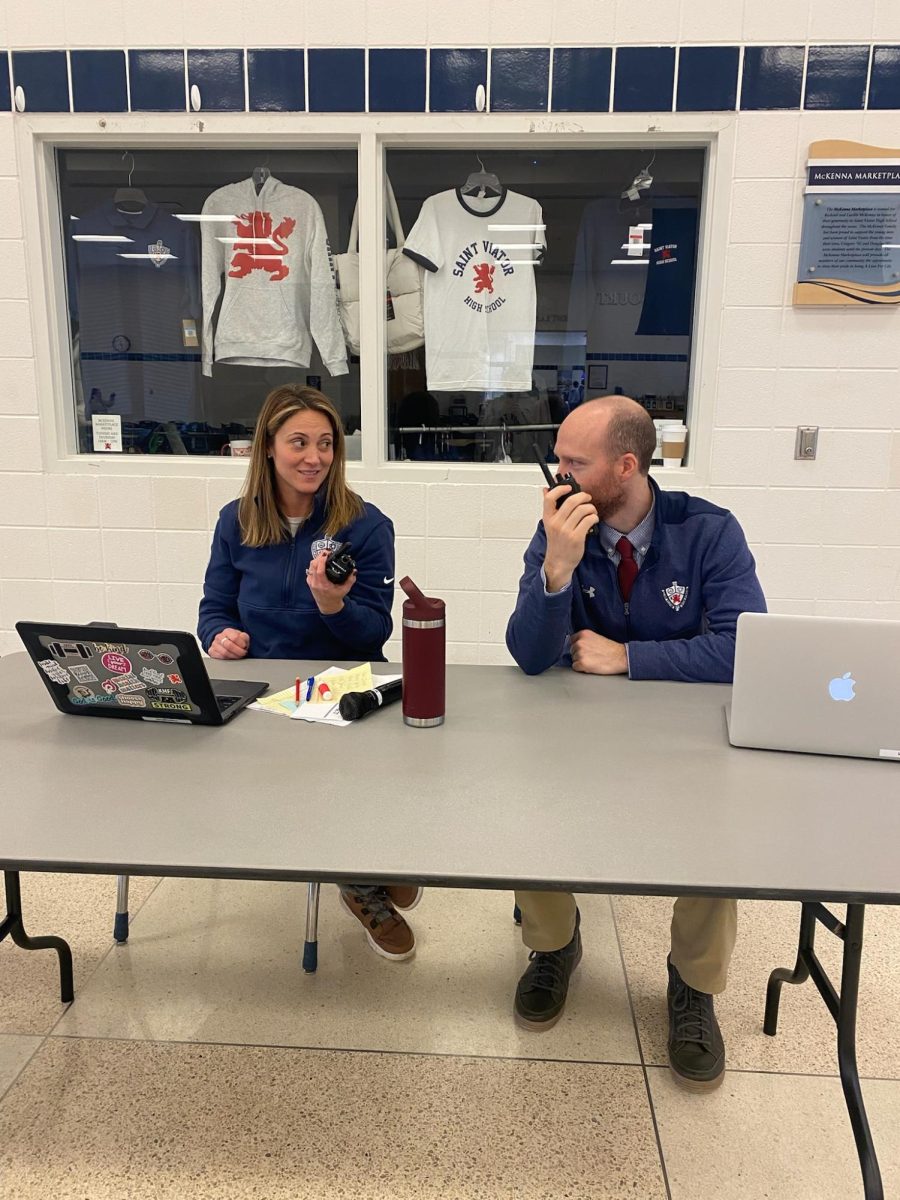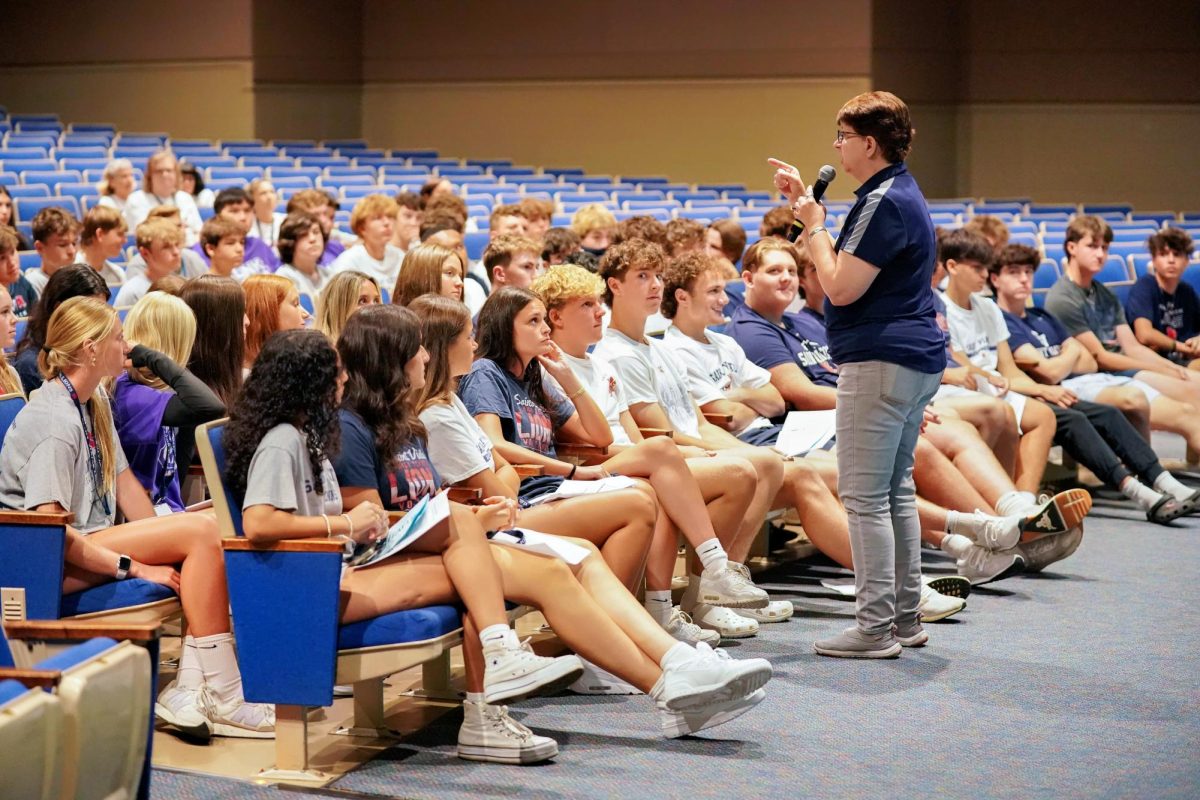Saint Viator offers a variety of different classes and electives for students to take advantage of. From film study to statistics, Photoshop to entrepreneurship, or engineering to music production, students are given a multitude of options for how they want to shape their years. This year, certain classes significantly expand the diverse curricula.
Only one of numerous art classes offered at Viator, Intro to Visual Arts is one of the most accessible classes for freshmen and sophomores. Intro is only a semester long, so students are not required to make a major commitment upfront. The class focuses on traditional art, such as painting, drawing, and sculpting, and is taught by Mr. Gruenfeld, who has a true passion for the class content.
According to him, students tend to have different attitudes towards the class as the semester progresses. Students usually surprise themselves with how well they can do in the class, while also being able to create projects they are proud of.
“I liked how we did physical and digital art by using lots of mediums and that we also created sculptures,” said junior Reagan Kloss, who took the course last year.
Intro’s grading rubric is broad yet objective. If a student is required to use three specific colors in a painting, but fails to do so, points are deducted. As long as the basic criteria is met, and the student shows effort, points are awarded.
“I keep my projects as vague as possible so there’s as much creative expression as possible,” Mr. Gruenfeld said. “You have to not turn in stuff to fail my class.”
If art can help recreate a crime scene, forensics breaks it down. Forensics, taught by Mrs. Ruege, is meant to be a one year course that calls upon key observational skills while processing crime scenes; students engage on a significantly deep level through hands-on analysis of criminal evidence, scene recreation, and toxicology.
However, as a mildly graphic class, it is only available for juniors and seniors. Underclassmen need time to prepare for it ahead of time, as the forensics field utilizes concepts from biology, chemistry, physics, and even trigonometry regularly. But really, all a prospective student needs is their prerequisites completed and an interest in the subject matter.
“The more exposure you have to a lot of different things, it will probably be a more gratifying experience in a way,” Mrs. Ruege said.
Mrs. Ruege also has many in-house field trips. Many government workers visit the classroom to provide exposure for the application of forensics in careers such as the Police Department, Fire Department, and other high positions.
“My favorite part about Forensics was when the police officers came in. I’m really looking forward to the FBI!” junior Niko Mavrakis said.
The class also largely requires logic-based thinking and strays away from standard lecture-style teaching. In order to achieve success in Forensics, a student must put in effort and be able to effectively work with others. Rarely do students work alone.
Similar to creativity and reconstruction, Python serves as an introductory course to coding. Specifically, the class uses the program to create digital pictures with math and science. Mr. Weber, who has recently realized the growing need for computer science, teaches the class to all grade levels and considers it a foreign language to many.
Another class that strays from lecture style teaching, Python is mainly focused on the self-paced student. The class has no tests, no quizzes, and no homework, as all work is done in class. On certain versions, even calculators can run Python.
According to Mr. Weber, the teacher acts as a moderator for the class, by helping students when they encounter issues, but not to explain everything to them.
“Some students, if they prefer to get the information in a lecture or have the teacher standing in front of them the whole class, this is not that class,” said Mr. Weber. “This is them, learning material, practicing, just by doing it.”
Coding is becoming a universal language. No matter the line of work, one’s ability to code will significantly help them in a growing technological world.
Even beyond the realms of art, science, and computations, the current class curriculum has so much to offer to students with various appeals, while also helping students find new interests. With ongoing class additions made available to students, every consecutive year only gets better. Everyone should consider learning something new, whether it be a skill, trick, or namely, art, forensics or Python.
Diverse courses keep options open
Forensics students carefully dissect a fetal pig as part of a lab in class.
Donate to Viator Voice
$0
$500
Contributed
Our Goal
Your donation will support the student journalists of Saint Viator High School. Your contribution will allow us to purchase equipment and cover our annual website hosting costs.
More to Discover



